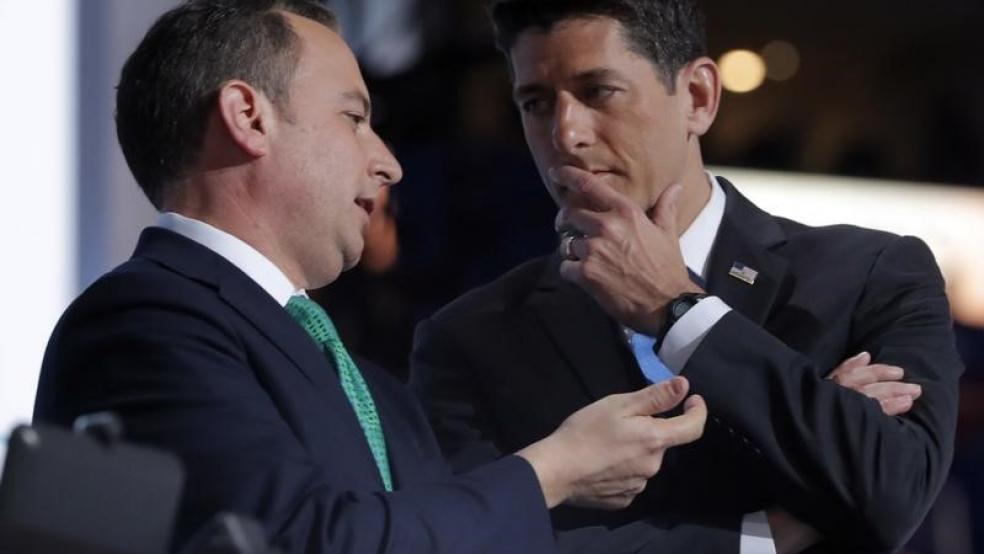WASHINGTON (Reuters) - Most Republicans believe real estate mogul Donald Trump will positively influence Thursday's first presidential debate, saying his presence will challenge the establishment and open the party to new ideas, a Reuters/Ipsos poll shows.
Trump's outspokenness has worried party leaders and heightened anticipation for a potentially combative debate, which will be televised live at 9 p.m. EDT on Fox News, which invited 10 of the 17 Republican contenders to participate.Many rank-and-file Republicans see Trump's blunt and unpredictable style as an asset. More than two-thirds agreed that his debate appearance would challenge the establishment, while 62 percent said it would lead to more honesty, and 61 percent said it would open the party to new ideas.Trump, whose rapid rise to the top of the 2016 Republican pack in polls will put him center stage in Thursday's debate in Cleveland, has courted controversy with personal attacks on his rivals and scathing comments about Senator John McCain's war record and about Mexican immigrants.The poll found about half of Republicans thought Trump's presence meant something offensive would be said, while 42 percent believed he would add comedy to an otherwise boring event. Thirty-two percent thought he would make a mockery of the political process.Democrats took a dimmer view. Three-quarters of Democrats said his participation meant something offensive would be said, while 69 percent said it would make a mockery of the political process.Among all voters, 37 percent were more likely to watch the debate because of Trump and 24 percent were less likely. Forty percent said it would make no difference. Among Republicans, 41 percent were more likely to watch because of Trump.TRUMP'S SUPPORT SLIPS"For most people, having someone like Trump included in the debate means 'hey, maybe this will be interesting for a change,'" Ipsos pollster Chris Jackson said .Trump, a billionaire television personality who has mocked former Texas Governor Rick Perry's glasses and publicized U.S. Senator Lindsey Graham's personal telephone number, said he does not want to go on the attack on Thursday."I’d rather just discuss the issues," he told ABC on Wednesday. "If I'm attacked I have to, you know, do something back, but I'd like it to be very civil."Trump's support in polls has slipped in recent days after his recent surge, though he remains firmly ahead. A separate five-day rolling Reuters/Ipsos poll found his support had dropped back to 24 percent in the Republican race after hitting a high of 31 percent on Saturday.Former Florida Governor Jeb Bush was in second place and gaining ground, rising from 13 percent support on Saturday to 17 percent on Tuesday.Fox News invited the top 10 finishers in an average of five recent national polls to participate in the debate, giving them a head start on prime-time attention. The network used polls by Bloomberg, CBS News, Fox News, Monmouth University and Quinnipiac University to compile the average.The seven other candidates seeking the Republican presidential nomination for the November 2016 election were shunted out of prime time to a separate 5 p.m. EDT forum.Reince Priebus, chairman of the Republican National Committee, said the party's candidates were unlikely to attack each other but would focus their criticism on Democratic front-runner Hillary Clinton and President Barack Obama."Ultimately, the real issue here is Hillary Clinton, Barack Obama, and the fact that the country's really not in a good place right now," Priebus said on NBC.The poll on Trump and the debate surveyed 1,152 Americans online from July 31 to Aug. 5, with an overall credibility interval of plus or minus 3.3 percentage points. It included 394 Republicans, with a credibility interval of plus or minus 5.6 percentage points.Tuesday's results in the online rolling poll are based on a survey of 330 Republicans and have a credibility interval of plus or minus 6.2 percent. (Additional reporting by Susan Heavey; Editing by Bill Trott, Mary Milliken and Leslie Adler)Republicans see Trump as positive debate influence: Reuters poll

Mike Segar



